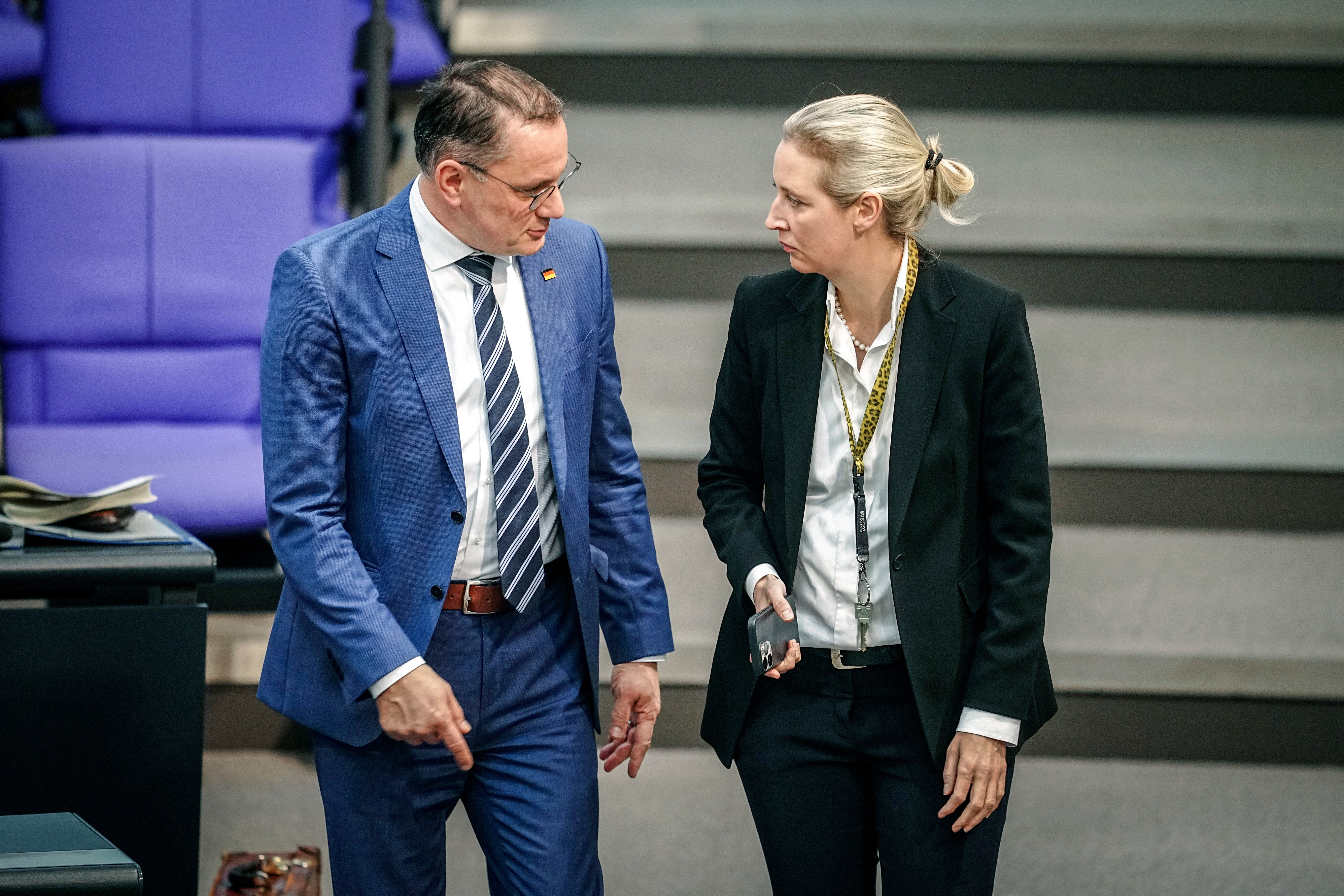German far-right party assailed over report of extremist meeting
Germany’s governing parties have assailed a resurgent far-right opposition party over a report that extremists recently met to discuss the deportation of millions of immigrants, including some with German citizenship, which has led to a string of protests in recent days

Germany's governing parties assailed a resurgent far-right opposition party on Thursday over a report that extremists recently met to discuss the deportation of millions of immigrants, including some with German citizenship, which has led to a string of protests in recent days.
Media outlet Correctiv last week reported on the alleged far-right meeting in November, which it said was attended by figures from the extremist Identitarian Movement and from the far-right Alternative for Germany, or AfD. A prominent member of the Identitarian Movement, Austrian citizen Martin Sellner, presented his “remigration” vision for deportations.
National polls currently show AfD in second place with support of over 20% — behind the mainstream opposition center-right bloc, but ahead of the parties in Chancellor Olaf Scholz's unpopular center-left governing coalition. The party is even stronger in three regions in the formerly communist east that will hold state elections in September.
AfD has sought to distance itself from the meeting, saying it had no organizational or financial links to the event, that it wasn’t responsible for what was discussed there and members who attended did so in a purely personal capacity. Still, AfD co-leader Alice Weidel has parted company with an advisor, Roland Hartwig, who was there — while also decrying the reporting itself.
In recent days, “we have heard fears and concerns; we have seen that, at kitchen tables in Germany, German citizens are discussing the question of whether they must flee their own country,” Lars Klingbeil, the co-leader of Scholz's Social Democrats, told parliament on Thursday.
“You are a wolf in sheep's clothing, but I'm telling you that your facade is beginning to crumble,” he told AfD lawmakers.
Konstantin Kuhle, a senior lawmaker with the Free Democrats, one of Scholz's coalition partners, said the reported meeting showed that AfD is working to serve as “civic proxies” to right-wing extremists.
There have been repeated demonstrations against the far-right in German cities in recent days, including one in Cologne on Tuesday that attracted tens of thousands of participants.
AfD chief whip Bernd Baumann complained that mainstream parties are “falsifying our demands, particularly on the issue of ‘remigration'" and asserted that his party faces a “devious campaign by politicians and journalists from the ruined left-green class.”
“Little private debating clubs are being blown up into secret meetings that are a danger to the public,” he said.
The furor has prompted calls for Germany to consider seeking to ban AfD, which has moved steadily to the right since its founding in 2013. Many of its opponents have spoken out against the idea, arguing that the process would be lengthy, success is highly uncertain and it could benefit the party by allowing it to portray itself as a victim.
Bookmark popover
Removed from bookmarks